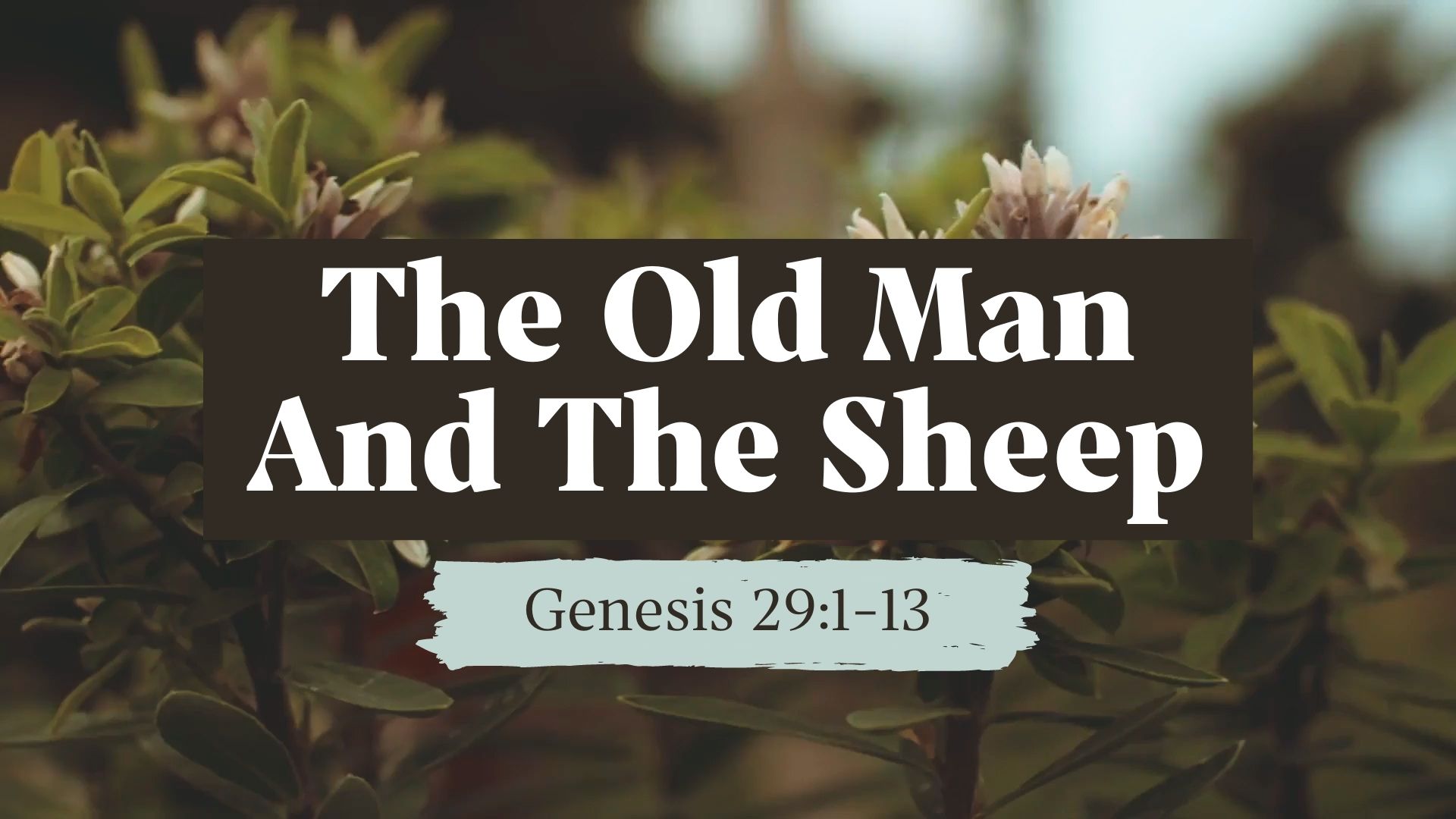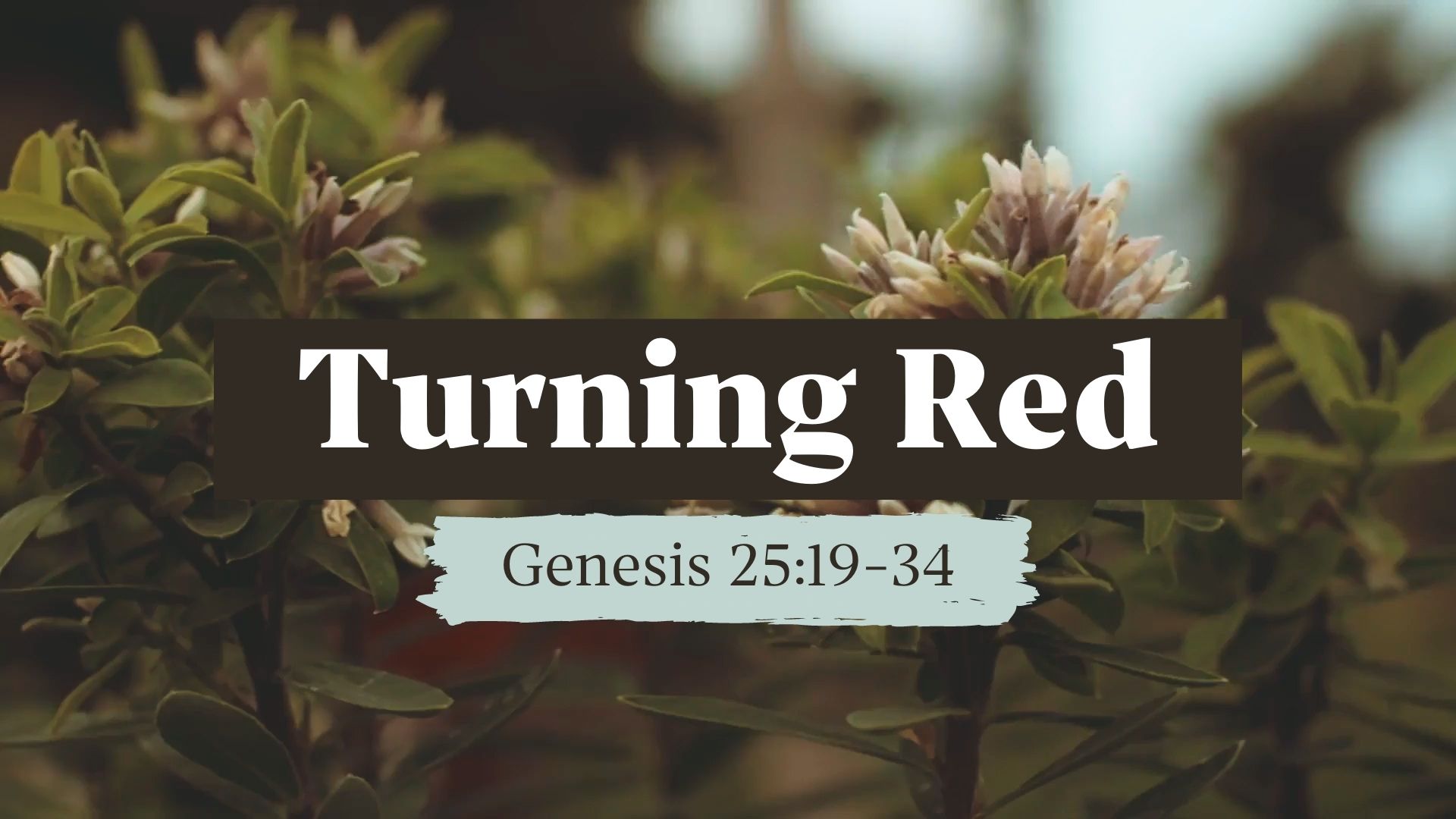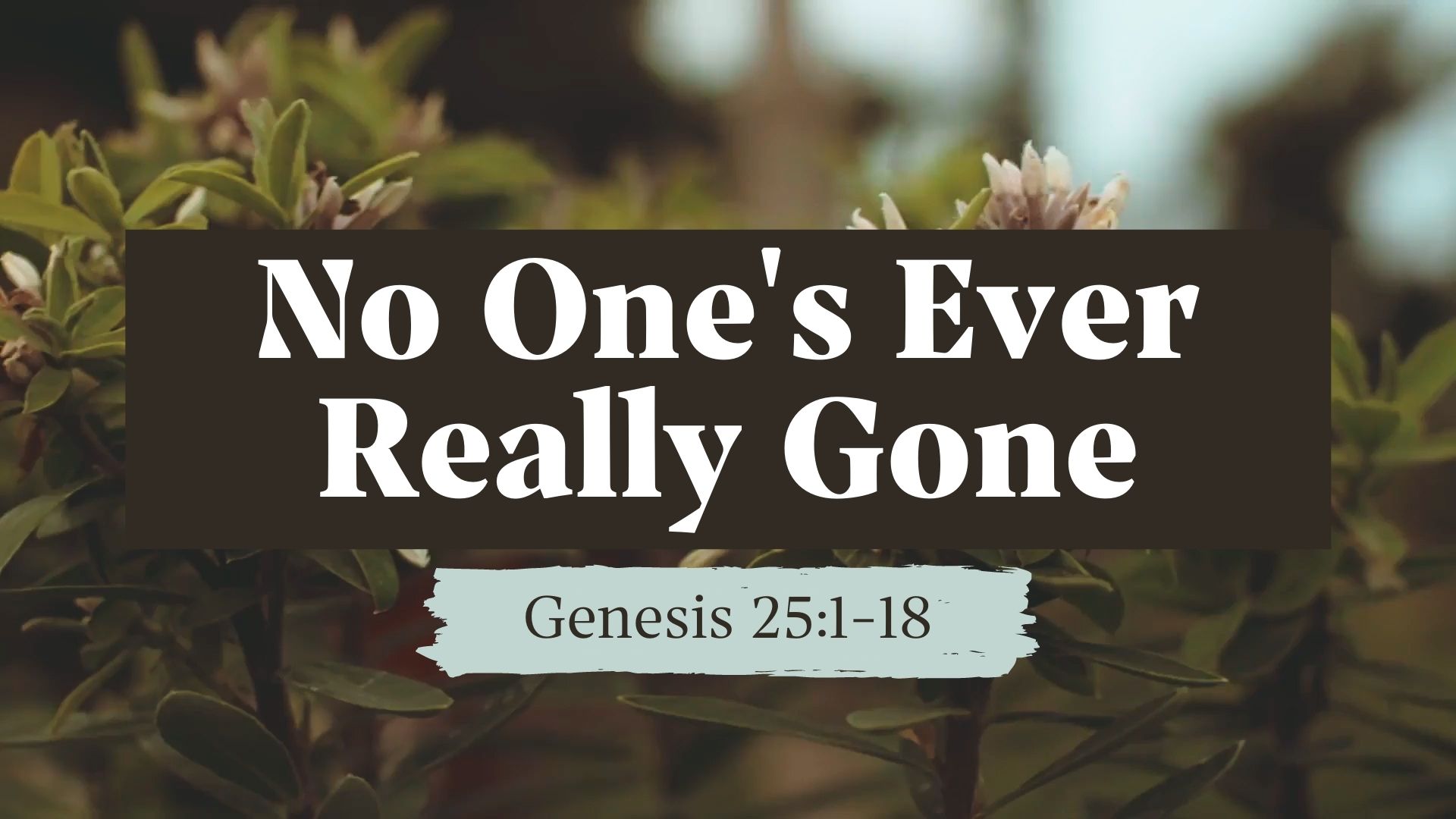
The New Deal (Genesis 30:25-43)
In 1983 Heidi Roizen founded a small software company with her brother, Peter. Shortly after, Heidi found herself in Steve Jobs’ office, trying to negotiate a deal with the infamous CEO. Her company would be distributing a word processing application that had been developed by some of her employees who who were working for Jobs. It was a complicated situation, but boiled down the deal was that Heidi’s company would do the work but they would have to pay a royalty back to Jobs’ company NeXT. In the negotiation, Heidi pitched Steve the standard 15% royalty. He tore up the contract, handed her the pieces and said, “Come back at 50%, or don’t come back.” Heidi writes, “I was stunned. There was no way I could run my business giving him 50% of my product revenues…I slogged down to my car feeling like I had just blown the biggest deal of my life.”
Luckily, someone followed her out of the meeting. It was a friend who was working in the background of the deal. He gave Heidi this advice: “Make it look like fifty percent…Figure out a way to make a contract that you can live with that also says 50% at the bottom.”
That’s exactly what Heidi did. She moved figures, adjusted calculations – all legal – but made the contract say Steve Jobs would receive a “50%” royalty on all the software shipped. They inked the deal, but Steve Jobs would later joke that he “made more money collecting interest on his bank account” than on the deal he had forced on Heidi. That’s ok. In the end, everyone was happy, the partnership was a success. Heidi even went on to work as a VP at Apple.
In our text tonight there’s a tense business negotiation. But, it doesn’t culminate in a mutually-beneficial partnership. In this new deal, each participant has very different goals. Jacob is trying to build up enough resources to leave Haran. Laban has no interest in letting him leave. And so, he uses his position to not only cheat his son-in-law, but try to ensure that Jacob will never have enough resources to set out on his own. It’s an ugly situation. Luckily Jacob has a Friend working in the background Who has his best interests in mind and shows him what to do.
Genesis 30:25 – 25 After Rachel gave birth to Joseph, Jacob said to Laban, “Send me on my way so that I can return to my homeland.
After years of passiveness, Jacob becomes animated and decisive. Something about Joseph’s birth lit a fire under him. Maybe he was worried that, without a child, Rachel might choose to stay with her family rather than travel with Jacob and the others. More importantly, we learn in chapter 31 that Jacob had received a dream from the Lord and in it God had said, “Get up and go home!” Like the Prodigal Son, Jacob finally starts coming to his senses. We can almost hear him saying to himself, “What am I doing? This isn’t my home. I’ve got to get free and get back.”
Genesis 30:26 – 26 Give me my wives and my children that I have worked for, and let me go. You know how hard I have worked for you.”
It’s clear that he did not feel free to go. He speaks to Laban, much like Moses spoke to Pharaoh, saying, “Let my people go.” The previous agreement he made with Laban was finished. He worked 14 years for Rachel, rather than for money. Jacob still owned nothing in this foreign land. Imagine having the responsibility of providing for four wives and at least a dozen kids but you have no money, no flocks, no property, and no prospects other than getting back to your actual inheritance 500 miles away.
Genesis 30:27 – 27 But Laban said to him, “If I have found favor with you, stay. I have learned by divination that the Lord has blessed me because of you.”
Laban has no intention of letting Jacob go. In fact, he will angrily insist that Rachel and Leah and Bilhah and Zilpah and all the kids belong to him, not Jacob. Laban does everything he can to keep Jacob from scratching a living together. And he tells us why: “The Lord has blessed me because of you.” Laban had become a very wealthy man, thanks to God’s blessing and he has no interest in turning that tap off.
Let’s also not forget that Jacob is 100 years old at this point. Laban is probably thinking, “I’m already working this guy to the bone…he’s got one foot in the grave. If I string him along a little while longer, he’ll be dead and I’ll have everything anyway.”
Notice this about Laban: He’s happy to benefit from contact with God, but has no interest in worshiping Him. He’s a lying, cheating pagan. Your translation may say, “I have learned by experience that the Lord has blessed me,” or it might say that he discovered this through divination. Scholars are divided. But Laban is a pagan. He has his household idols. He serves the god of greed. But, he’s happy to have this Almighty God of Abraham increasing his flocks. But we don’t get to pick and choose which parts of God’s presence we want and just ignore the rest.
There are pundits and debaters out there right now, many of them politically conservative, who talk about the benefits of a society built on the Judeo-Christian worldview. Popular speakers like Jordan Peterson and Dave Rubin, for example, will say things like they are “convinced that societies run better when they operate under a belief system that stems from timeless age-old biblical truths,” but they say “don’t want people to be religious, per se,” it’s just about the benefits of a moral society. Rubin says, ”Individuals can be godless and still be good.” Peterson says it would take multiple books and lectures for him to simply answer the question, “Do you believe in God?”
This attitude is similar to Laban’s approach to God. “I want the advantage without the allegiance. I’ll sign up for the free grace, but don’t talk to me about bowing my knee to the King of kings.” Now, Jordan and Dave have some interesting things to say. But by their own admission they are concerned with economics and politics, just like Laban was.
Genesis 30:28 – 28 Then he said, “Name me your wages, and I will give it.”
Sounds familiar, doesn’t it? They’ve had this talk before. Jacob knows his father-in-law can’t be trusted. Notice how Laban tries to control the conversation – he tries to control the language used – always to keep Jacob subservient and in a position of weakness.
Genesis 30:29-30 – 29 So Jacob said to him, “You know how I have served you and how your livestock has been with me. 30 For what you had before I came was little, and it has increased to a great amount; the Lord has blessed you since my coming. And now, when shall I also provide for my own house?”
They both acknowledge that God is the One blessing Laban’s house. That makes it all the more sad that Jacob has shown so little interest in the Lord. It’s the Lord Who has reached out to Jacob in a dream – twice now. We still haven’t seen Jacob pray or worship. He made a little rock monument, but that was hardly a moment of great praise or devotion. So, here’s God, actively involving Himself in their lives, but their response is to bicker and jostle and figure out who’s going to cheat who.
Genesis 30:31-33 – 31 So he said, “What shall I give you?” And Jacob said, “You shall not give me anything. If you will do this thing for me, I will again feed and keep your flocks: 32 Let me pass through all your flock today, removing from there all the speckled and spotted sheep, and all the brown ones among the lambs, and the spotted and speckled among the goats; and these shall be my wages. 33 So my righteousness will answer for me in time to come, when the subject of my wages comes before you: every one that is not speckled and spotted among the goats, and brown among the lambs, will be considered stolen, if it is with me.”
This is not a friendly agreement. Jacob calls Laban out and says, “You’re not giving me anything.” And, in the end, it’s a hostile arrangement. “If I have non-speckled sheep, then treat me as a thief.”
Jacob picked these terms because they were revealed to him in a dream from the Lord. On the surface, it’s a really bad deal for Jacob. You see, speckled and spotted weren’t the kind of livestock that were prized. But, more importantly, they were a small minority in any flock. Archaeologists have discovered some ancient, Babylonian shepherding contracts from this time period. They found that the regular deal was that the owner would keep 80% of the flock and the shepherd would be given 20%, plus a percentage of the wool and dairy products. Jacob is asking for much, must less, even if Laban doesn’t cheat him, which he does. Why would Jacob set these terms?
It was God’s idea. There will be times when God asks us to do things that look very foolish in the eyes of the world. But if we are walking by faith, it means we’ll have to do some things that make no worldly sense. David fought with no armor. Daniel wouldn’t eat the good food. Naaman had to dip in the Jordan seven times. Paul had to make tents and Timothy had to be circumcised as an adult. They didn’t do those things in order to appear foolish – being believers isn’t about putting on a show – but as they followed the Lord there were times when they were asked to exercise faith and do something conventional wisdom would never allow.
Genesis 30:34-36 – 34 “Good,” said Laban. “Let it be as you have said.” 35 That day Laban removed the streaked and spotted male goats and all the speckled and spotted female goats—every one that had any white on it—and every dark-colored one among the lambs, and he placed his sons in charge of them. 36 He put a three-day journey between himself and Jacob. Jacob, meanwhile, was shepherding the rest of Laban’s flock.
Laban agrees and then immediately violates their contract. As time went on, he would randomly and change the terms of the deal again and again, each time to benefit himself.
What’s amazing about Laban is how brazenly he cheats people. Back when he sent Leah to be married instead of Rachel, he did so in front of the whole community, making Jacob a laughingstock. The same thing happens here. Jacob already was Laban’s shepherd. He knew how many speckled and spotted animals there were in those flocks. He showed up to work the next day and, what do you know? They’re all gone! Meanwhile, word would’ve travelled fast that Laban’s sons were a few hills away, guarding an all-speckled flock. This was incredible, blatant fraud. But, for once, Jacob seems to trust the Lord. He’s put all his chips on this dream and waits it out. It takes time for little sheepies to be born and grow up and make a bigger flock. Jacob will wait for six years before finally making his move to free himself from Laban’s tyranny. And they were six long years. Remember: Jacob effectively had two full-time jobs now: Watching his own fledgling flocks and overseeing Laban’s, too. After awhile he had money to hire servants, but not at first. It’s all him.
Genesis 30:37-42 – 37 Jacob then took branches of fresh poplar, almond, and plane wood, and peeled the bark, exposing white stripes on the branches. 38 He set the peeled branches in the troughs in front of the sheep—in the water channels where the sheep came to drink. And the sheep bred when they came to drink. 39 The flocks bred in front of the branches and bore streaked, speckled, and spotted young. 40 Jacob separated the lambs and made the flocks face the streaked sheep and the completely dark sheep in Laban’s flocks. Then he set his own stock apart and didn’t put them with Laban’s sheep. 41 Whenever the stronger of the flock were breeding, Jacob placed the branches in the troughs, in full view of the flocks, and they would breed in front of the branches. 42 As for the weaklings of the flocks, he did not put out the branches. So it turned out that the weak sheep belonged to Laban and the stronger ones to Jacob.
It’s hard to know what to make of this whole business. Is Jacob following the science, or is he being superstitious, or is he obeying what the Lord told him to do? We’re not given enough information to know for sure. We’re never told that God gave him this peeled branches plan in the dream. But, there were times when the Lord asked people to do strange things as evidence of their faith. Paint blood on your doorposts. Strike the ground with a bundle of arrows. Gather as many pots as you can and start filling them with oil. Scholars seem to be afraid that the Bible is suggesting this as a scientific method. Others say Jacob knew all about recessive genes and how to breed them out, so he used this striped stick thing as a fake out! Others scold Jacob for giving in to magic like Laban had. We just don’t know what the motivation for the stick thing is. What we do know is that God was specifically calling Jacob back into a life of faith. And a life of faith is going to demand a willingness to allow God to direct according to His methods and purposes. And it might take a great amount of time, it might seem very counter-intuitive, it might make us wonder why and when and, “Lord, can’t we just do this a simpler way?” But we must remember that God has called us by name. He has prepared beforehand a life for us to walk in and without faith it is impossible to please God.
Scholars reveal that where we read the word “white,” the Hebrew term is “Laban.” That’s what Laban’s name means. Bruce Waltke writes, “As Jacob took over [Esau] by red stew, so he takes over Laban by white branches.”
Should Jacob have done this? It was God’s intention to build him a flock of his own. But what about actively weakening Laban’s flock at the same time? Certainly, Jacob had an ethical responsibility to do his job well and his job was not just to build himself a flock, but also to maintain Laban’s.
There is an element of Divine justice here. Laban is reaping what he sowed. Eugene Roop reminds us that, in their previous agreement, Laban had cheated Jacob, giving him the weaker, unwanted wife. And now, the weaker, unwanted flocks are being given back to Laban.
But does that mean we should give ourselves the go-ahead to “fight fire with fire?” My boss did something unethical, so am I released from my own responsibilities? Our political leaders lie, cheat, and steal, so does that mean we have to play the game, too? The Bible consistently tells us as Christians to do the opposite. That we’re to love our enemies, pray for them, bless them, and even help them – not to do evil, but to treat them as we want to be treated.
Theophilus of Antioch, a second-century bishop and apologist wrote, “Be it far from Christians to conceive any such deeds; for with them temperance dwells, self-restraint is practiced, monogamy observed, chastity guarded, righteousness exercised, worship performed, God acknowledged; truth governs them, grace guards, peace screens them, and the holy Word guides.”
From the beginning, God told Abraham that His goal was for this family to be a blessing to the whole world. Yes, enemies would arise, and God promised to give protection and victory to His family of faith, but the point wasn’t supposed to be “us vs. them.” The goal was that the whole world be blessed and be exposed to the gracious glory of God and to be shown how they, too can be redeemed.
So this is a raw deal going sideways, but for us it’s a reminder of the calling we have as we navigate an unbelieving and sometimes hostile world. We’re to be a blessing, even to pagans. Not at the expense of our righteousness or integrity, but we’re to live the kind of lives in our society that makes the Labans of life admit, “God is obviously with you and we’re lucky to have you around.” That doesn’t mean we’ll be treated fairly or with respect. Jacob certainly wasn’t. But even if we find ourselves under some Laban, we remember Who are real Master is. That brings us to our final verse.
Genesis 30:43 – 43 Thus the man became exceedingly prosperous, and had large flocks, female and male servants, and camels and donkeys.
God’s plan for Abraham’s family did include material prosperity. That might not be part of His plan for your life. But there’s something more significant than money going on in this verse. Did you notice how Jacob is not referred to by name here, but as “the man.” That seems less personal when we read it, but there’s something lovely here.
Jacob is being called “ish,” which means “man”, but is also what Adam was called back in Genesis 2. It’s a word that emphasizes individuality and “reflects God’s desire to provide man with a companion.” We’re reminded that God made us in His image. We’re reminded of the value He places on every single life. Adam’s, Jacob’s, yours, and mine. This wasn’t just about economic success. This was about something much deeper. This was about the tender, personal intentions God has for every single day of His child’s life and how, most of all, He wants to be in an intimate friendship with them.
You see, to Laban, Jacob was a laborer to be exploited, nothing more. To Esau, Jacob was an enemy to be destroyed. To Leah and Rachel, at least during this period of time, Jacob was little more than a prop or a prize to be fought over. To Isaac, Jacob was the disappointing other son who had supplanted his favorite.
But to God? Oh, to God, Jacob was treasured and loved unconditionally. God was always there, always watching, always helping, always offering. Sadly, Jacob spent many long years ignoring this God Who loved him so. Instead, he slaved for a master like Laban. But look at what kind of Master the Lord our God is. Look at His kindness. Look at His faithfulness. Look at His grace and generosity and attentiveness. Look at how He bends heaven and earth to do exceedingly above what we could ever ask or imagine. Which Master do you want to serve? Don’t serve Laban, whether that’s some Laban in your life or the Laban that lives inside your human heart. Serve the Master who bought you with His own blood. The One Who loves you with the same powerful, personal, marvelous love we see here. To follow Him means to answer His call, to walk according to His word and to trust Him with your whole life.








